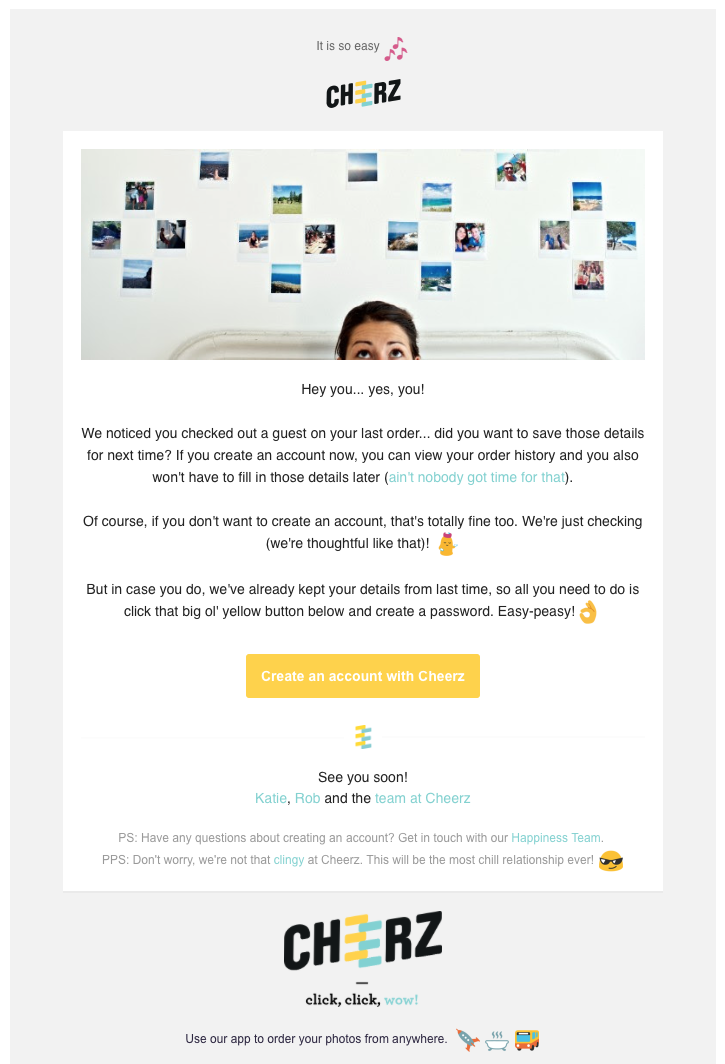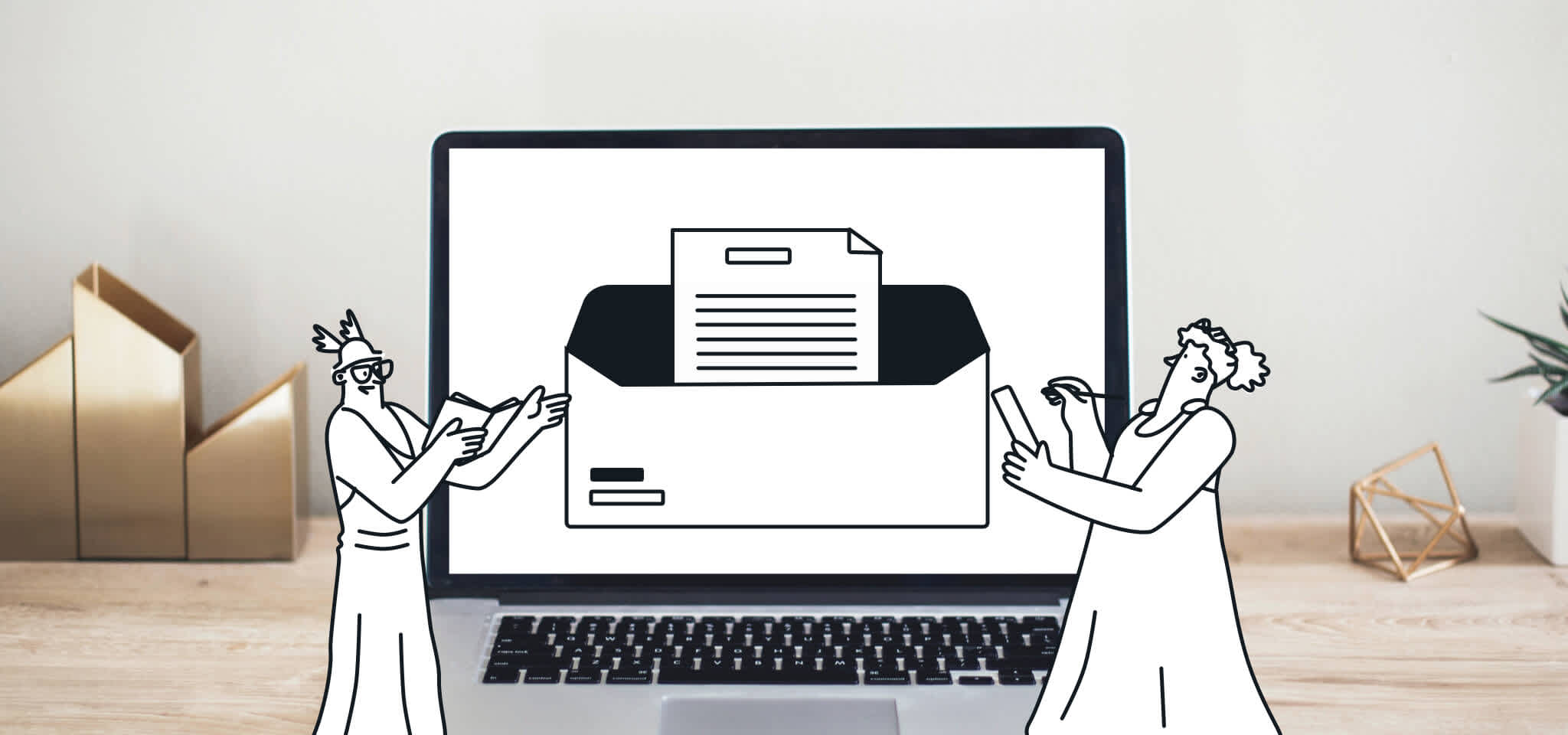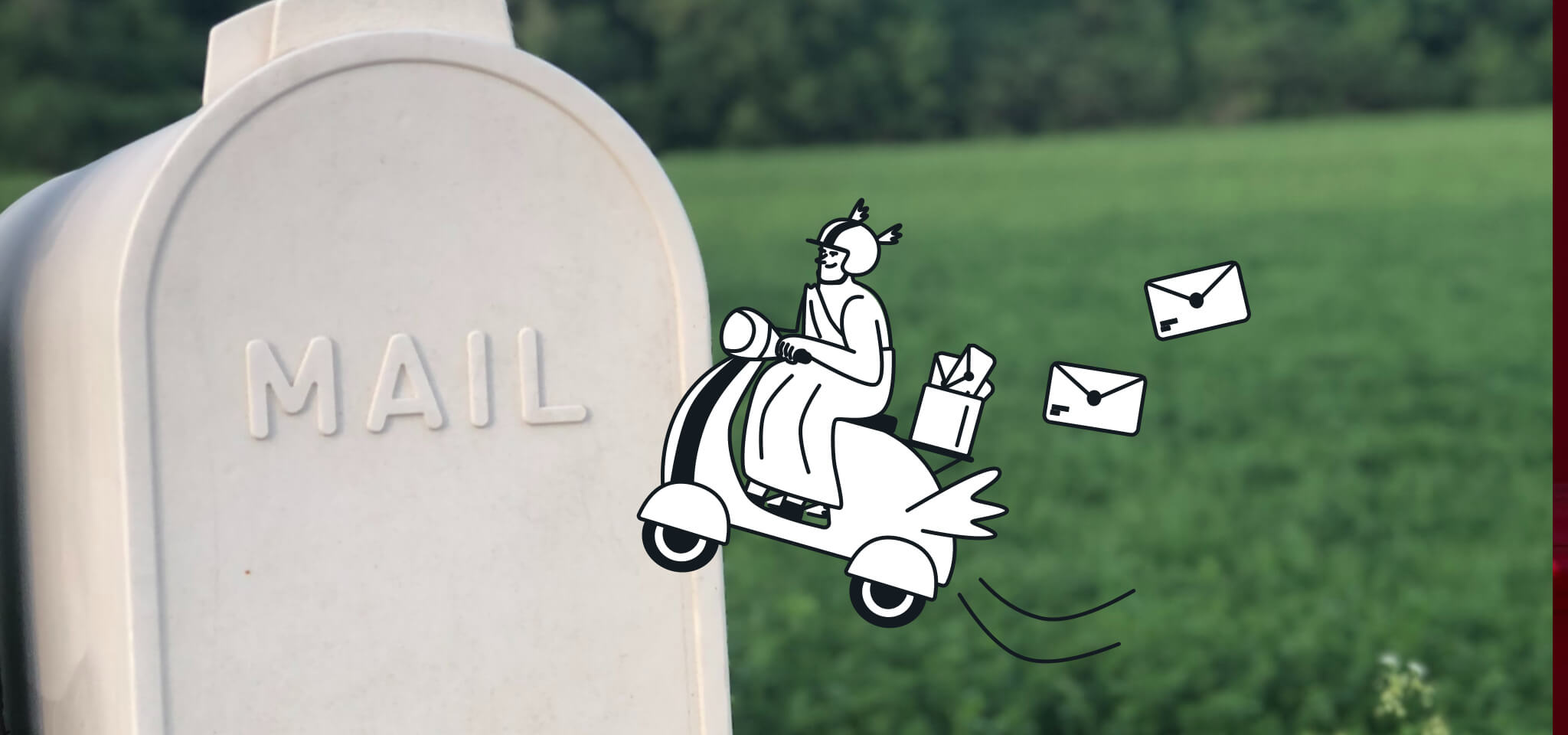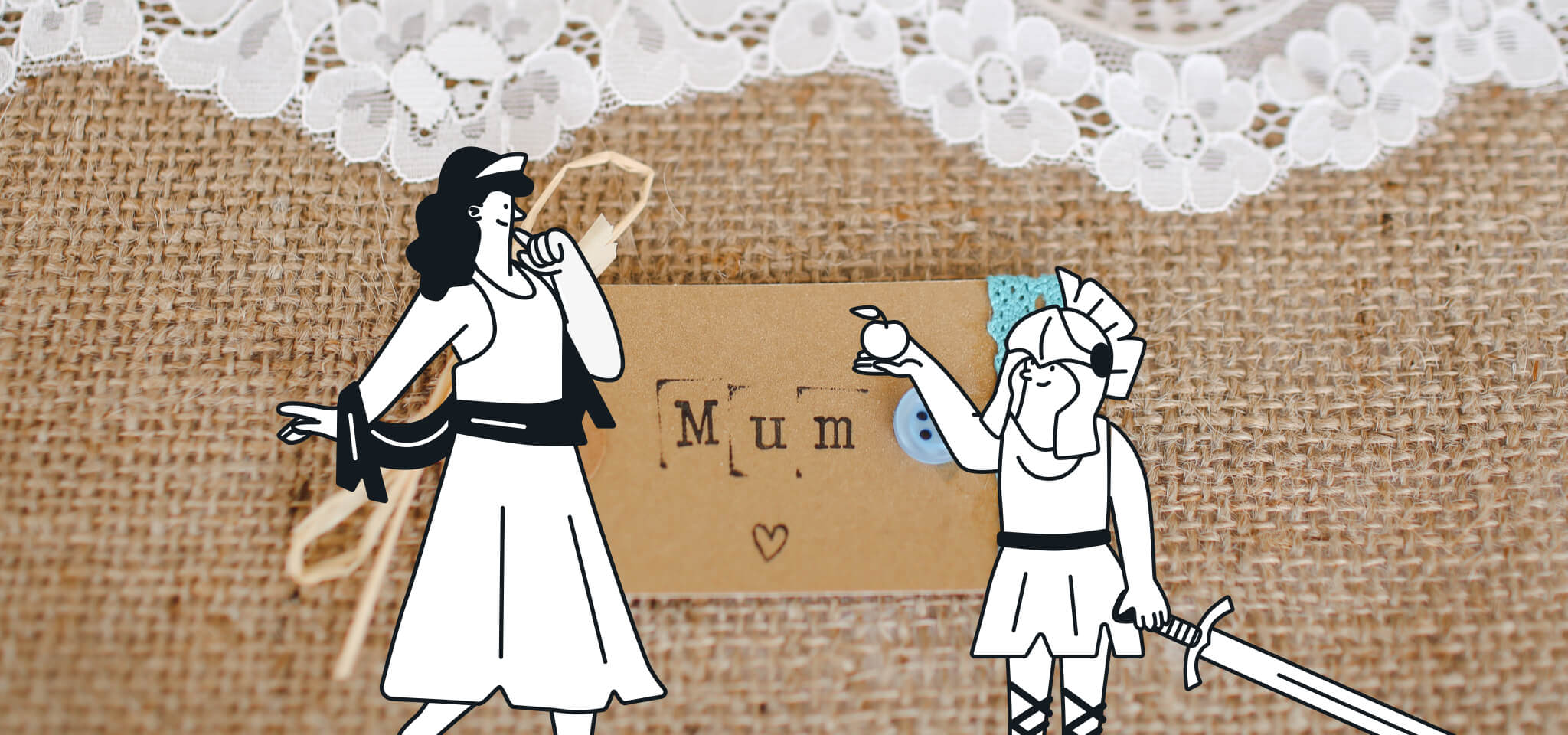Email Best Practices
Content engagement: Finding your inner email voice
Wondering how you can improve your content engagement in your email marketing strategy? Find your inner email voice and you'll stand out in the inbox.

PUBLISHED ON
It’s summertime, and you might be spending it away from civilization, doing yoga in a remote ashram in Southern Sri Lanka and trying to open your chakras, channel your inner strength and improve your overall karma. Or maybe you’re just sitting in your office, basically like we are.
If this is the case, you might be getting really upset about not having a white cotton toga or Julia Roberts as your ashram roommate. Don’t. We can still use these few months to do some powerful workouts on your email marketing strategy (yay!). Today, we’re going to explore the best ways to find your inner email voice, to optimize content engagement and increase customer loyalty and global open rates.
Hold on. Inner Email Voice? What has that even got to do with Content Engagement?
Maybe you never thought of your emails as something that could have a voice - let alone that this voice is something that ought to be given some thought. But the way you speak to your customers through your emails matters a lot. We said it before and we’ll say it again - email is a privileged channel to tell your story and start to grow a deep, long-lasting relationship with prospects, users and customers. You reach them right in their inbox, a private space shared mostly with their precious ones and a handful of happy brands that earnt the right to be there the hard way (double opt-ins, killer subject lines, engaging content…). You need to cherish that privilege.
The best way to do that is to make sure that your email content fits in with the bond that you wish to create with your customers. A lot of brands still send exactly the same mass marketing campaigns with a standard message, like a promotional campaign, without worrying about how they convey that message. That’s where they’re wrong - there’s more to an email (or any text, really) than just the message.There’s the voice that you use, too. And that voice is a precious tool to show how you are different from other brands - and, ideally, be immediately recognized by your customers when they open their inbox.
By giving your emails that unique and identifiable voice, you could see an important change in your open rates. Think about it like this: when your messages reach the inbox, your user gets that familiar feeling of hearing from someone they already know. We all have a few brands we really like because of their witty or funny style, and even if we’re not in the mood to buy, we’re always in the mood to open their emails. Let’s face it, we can always do with another kitten gif in our lives. My personal email voice crush? Cheerz, all the way.

What’s your brand personality like?
Now, in order to define this inner email voice, you need to ask yourself (or brainstorm with your marketing team) the following questions:
What’s your brand personality like?
What do you use emails for?
What role do they play in your global marketing strategy?
Do you have a distinguishable voice in any of your other media (social media, blog or even website)?
How does this voice fit in with your email marketing strategy?
You see where we’re going with this, right? Your email voice will have to be a reflection of your global brand voice, to maximize the impact of your marketing strategy and help the customer remember you. But that doesn’t necessarily mean that your electronic messages will have to use the same tone as your (let’s be honest, boring) FAQ page, or be as light-hearted as your tweets.
Channeling your inner email voice
OK, so here’s when the channeling comes into the picture. Once your brand personality is defined, consider the purpose of your emails, to work on the tone that you want to use in your emails.
You can play around with the subject line and subheader. These are the most impactful, since they are the first thing that your recipients see when they receive your emails. Opting for a specific style or way to introduce your message can already set your own voice apart. For example, Etsy always uses a short, inspiring, yet simple subject line that makes its emails easy to recognize (Merry & Bright, Pretty Persuasion, Aged to Perfection...).

But finding your voice isn’t just about how you write your content - it drives everything: the images that you choose, the layout, whether you include emojis and any other symbols to add non-verbal communication or not...
We know that, when we talk about email voice and personality, you instantly think about your marketing campaigns, but don’t forget about the transactional side either. There is no difference between marketing and transactional from the recipient's point of view: all these messages come from one single brand, so they have to be consistent. Pay attention to the password reminders, order confirmations and feedback requests, so that they also reflect that voice. Not sure how to do this? Tools like Passport, our drag-and-drop editor, help you design transactional emails just as easily as marketing campaigns: it’s a great way to ensure your voice is consistent throughout all your email communications.
We hope that these few tips have enlightened you and that you’ll apply them to your future emails. Once you do so, ping us on Twitter to tell us how you found your own inner email voice, using the hashtag #MailjetMarketing. Until then, good luck opening your chakras. Ommmm








